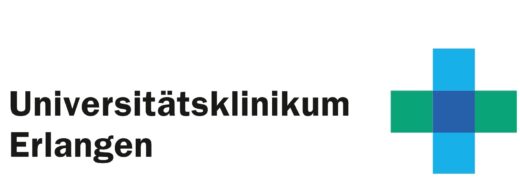The first thing that usually comes to mind when thinking about caring for relatives is the effort and stress that are involved. However, in Germany, approximately 87% of caregivers (CGs) also report that they benefit from caring for their loved ones (Fabà et al., 2017; Pendergrass et al., 2019). These experiences are referred to as “positive aspects of caregiving” (PACs).
PACs manifest themselves in the forms of personal growth, maturity (Fabà et al., 2017), and improved resilience (Yap et al., 2010) as well as in the learning of new skills (Zank et al., 2006). CGs also get to learn that they play an important role as CGs and that their work is seen and appreciated (Lawton et al., 1989; Tarlow et al., 2004). PACs can also have an impact on the physical and mental health of CGs by “buffering” the negative aspects of caregiving (Semiatin & O’Connor, 2012). PACs and subjectively experienced stress in caregiving are not mutually exclusive but often occur simultaneously (Lloyd et al., 2016).
The Benefits of Being a Caregiver Scale (BBCS), developed by Pendergrass et al. (2023), defines “benefits” as positive aspects of informal caregiving that differ from the more general concept of PACs in two ways: (1) The benefits experienced can be directly attributed to the caregiving activity (“Because of caring for my relative/loved one…”). (2) The experienced benefits represent “added value” for the CGs, aspects that arose only as a result of home care, i.e., a genuine “gain” (e.g., the surveyed person has become more mature/patient/responsible).
The BBCS is a tool for the standardized assessment of the benefits that CGs can experience in a home care situation. The scale was validated in an extensive sample of CGs. Its validity is apparent regardless of the cause of the need for care (e.g., stroke, cancer, rheumatism, dementia) and regardless of the relationship between the CG and the person being cared for (caregiving partner, caregiving adult children/children-in-law, caregiving parent, other relatives, no degree of kinship in the case of relatives).
Lawton, M. P., Kleban, M. H., Moss, M., Rovine, M., & Glicksman, A. (1989). Measuring caregiving appraisal. Journal of Gerontology, 44(3), P61-P71.
Lloyd, J., Patterson, T., & Muers, J. (2016). The positive aspects of caregiving in dementia: A critical review of the qualitative literature. Dementia, 15(6), 1534-1561.
Pendergrass, A., Mittelman, M., Graessel, E., Özbe, D., & Karg, N. (2019). Predictors of the personal benefits and positive aspects of informal caregiving. Aging & Mental Health, 23(11), 1533-1538.
Pendergrass, A., Weiß, S., Rohleder, N., & Graessel, E. (2023). Validation of the Benefits of Being a Caregiver Scale (BBCS)–further development of an independent characteristic of informal caregiving. BMC Geriatrics, 23(1), 26.
Semiatin, A.M. & O’Connor, M.K. (2012). The relationship between self-efficacy and positive aspects of caregiving in Alzheimer’s disease caregivers. Aging Mental Health, 16(6), 683–8.
Tarlow, B. J., Wisniewski, S. R., Belle, S. H., Rubert, M., Ory, M. G., & Gallagher-Thompson, D. (2004). Positive aspects of caregiving: Contributions of the REACH project to the development of new measures for Alzheimer’s caregiving. Research on Aging, 26(4), 429-453.
Yap, P., Luo, N., Ng, W. Y., Chionh, H. L., Lim, J., & Goh, J. (2010). Gain in Alzheimer care INstrument—a new scale to measure caregiving gains in dementia. The American Journal of Geriatric Psychiatry, 18(1), 68-76.
Zank, S., Schacke, C., & Leipold, B. (2006). Berliner Inventar zur Angehörigenbelastung-Demenz (BIZA-D). Zeitschrift für klinische Psychologie und Psychotherapie, 35(4), 296-305.
You can register to download the scale here.
! Those responsible for this website guarantee that all information provided during registration will be treated confidentially, in particular that it will not be passed on to third parties.
Downloading is permitted for non-commercial use only, which means specifically that
- the respondent completing the self-assessment tool incurs no immediate (direct) costs (billing as a health insurance benefit by third parties, e.g., doctors, is possible) and
- the BBCS is not resold to third parties in any form as part of a combined survey tool consisting of several survey instruments (e.g., as part of a larger, fee-based assessment tool).
Benefits of Being a Caregiver Scale (BBCS); Caregiver (CG); Positive Aspects of Caregiving (PAC)
